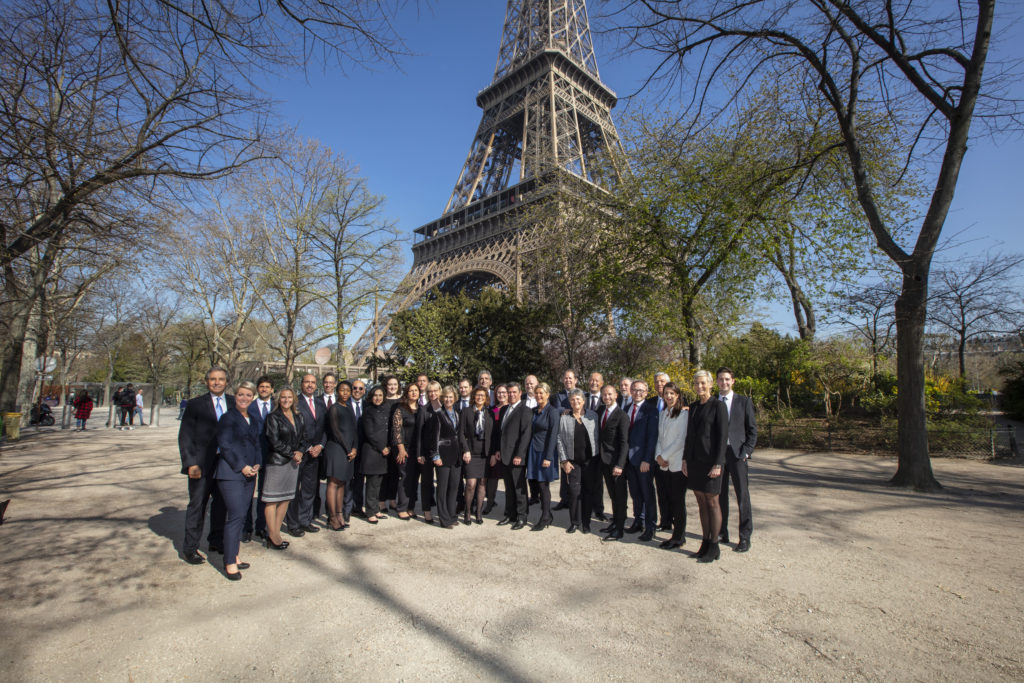“Impact of COVID-19 on talent ecosystems around the World and how it will affect the Executive Search Industry” was the topic of INAC’s last webinar.
David Fairhurst, Founder of the global people-focussed consultancy OrgShakers and previously EVP Global Chief People Officer at McDonald’s, was the host and shared with the network his perspectives on People strategy, the impact of COVID-19, and the future workplace.
He started by referencing an interview he gave to the Financial Times in March 2014 that included a bold prediction which, at the time, seemed counterintuitive. David forecast that demographic change would see developed global economies facing crippling labour shortages over the next decade, which ended up being so. Countries around the world have, one-by-one, tipped over the edge of this ‘workforce cliff’.
In response, organisations began hiring from a much wider pool of talent, including groups which had previously been marginalized such as youth, older workers, people with disabilities, and migrants. This resulted in investment in the progressive employment practices and inclusive workplaces required to support individuals from these diverse groups.
With the spread of the COVID-19 pandemic, workforce and workspaces automatically had to change in order to thrive in these uncertain times. Organisations that maintain their investment in talent – and specifically in inclusive workplaces – will gain a significant competitive advantage when the economy bounces back: a diversity dividend. Those that withdraw their investment risk falling into a disastrous talent trap they will struggle to escape from.
David explained that the reason for this can be summarised in one word: Trust. Individuals supported by progressive employment practices and inclusive workplaces are amongst the most vulnerable people in our communities. David also added that investment in people practices doesn’t always mean money – it can be about focus and where you put your effort. And when a cash investment is required, reinforcing inclusion should be part of the anticipated return on that investment
The faster the recovery, the faster the challenges of the ‘workforce cliff’ will return – and it’s those organisations which have secured a diversity dividend that will be able to secure the talent they need to drive future growth.
Over the past 6 years, progressive organisations have really started to evolve their thinking around people not just in marginalized talent pools but also in many other people practices.
David shared a number of these trend:
- Organisation Design becoming an “always on” and fluid process: Organisation Dynamics
- Workforce Planning becoming Worktask Planning, with a broader view of how to solve for organisation needs beyond a human on a seat
- The evolution in identifying Culture Fit which can lead to a homogeneous employee base to Culture Add where recruitment assesses values alignment, but attracts and includes difference
David also spoke about the process that affects employee engagement more than any other – Performance Management, which he believes has never really worked either for the employer or the employee, pointing out “you can’t manage a human’s performance, you can only motivate it.” Helping organisations think through this will be one of the key areas OrgShakers will focus on.
There is no doubt that COVID-19 has changed the World, every little aspect of it, workforce included. It is when people are at their most vulnerable, that they are the most open to being helped or hurt. Research shows that vulnerable times can have a huge impact when it comes to building or destroying loyalty and engagement.
According to David: “if returning employees feel that they are treated fairly and with concern, the organisation can powerfully reinforce loyalty and engagement. However, if employees feel they are treated unfairly or that the organisation does not care about them, they will typically experience intense negative reactions, and feel strong motivations to ‘get even’ with the organisation”.
That is why companies and organisations should have a suitable “returnment” strategy in place. As so, OrgShakers have created a four-stage model to achieve this:
- Re-assurance (the support needed ahead of returning to the workplace)
- Re-Onboarding (providing a positive Day One welcome)
- Re-Engaging (a Week One review of what’s changed from a manager of employee perspective, what can we learn)
- Re-recruiting (a Month One series of “Stay Meetings” with employees).
David believes that this is important time for organisations to focus on talent and, with people likely to be taking stock of their careers, that there will be a flight to education and retraining, and that the turnover of hi-potential talent will become an increasing risk.
Focus on the wellbeing of the employee is definitely critical and we will most likely see smart organisations appointing Chief Wellbeing Officers. Another area pointed out by David has do to with Emotional Intelligence, which is the primary driver of achieving a supportive culture – and a supportive culture is what’s needed to deliver the required focus on employee wellbeing.
In conclusion, now more than ever, it is time for organisations to turn their attentions to their employees and to focus on People Strategy.
INAC is a global executive search organization providing executive talent services across the globe, operating in 60+ affiliated offices across 36 countries and 6 continents.
We are at the heart of challenges and debates on global talent landscapes and the impact in your business.
By bringing together industry expertise on a global scale, INAC champions the highest standards in independent executive search and talent management, and continually looks to raise the international benchmark.
You are never far away from an INAC consultant who will work closely providing the expertise and advice you need.

